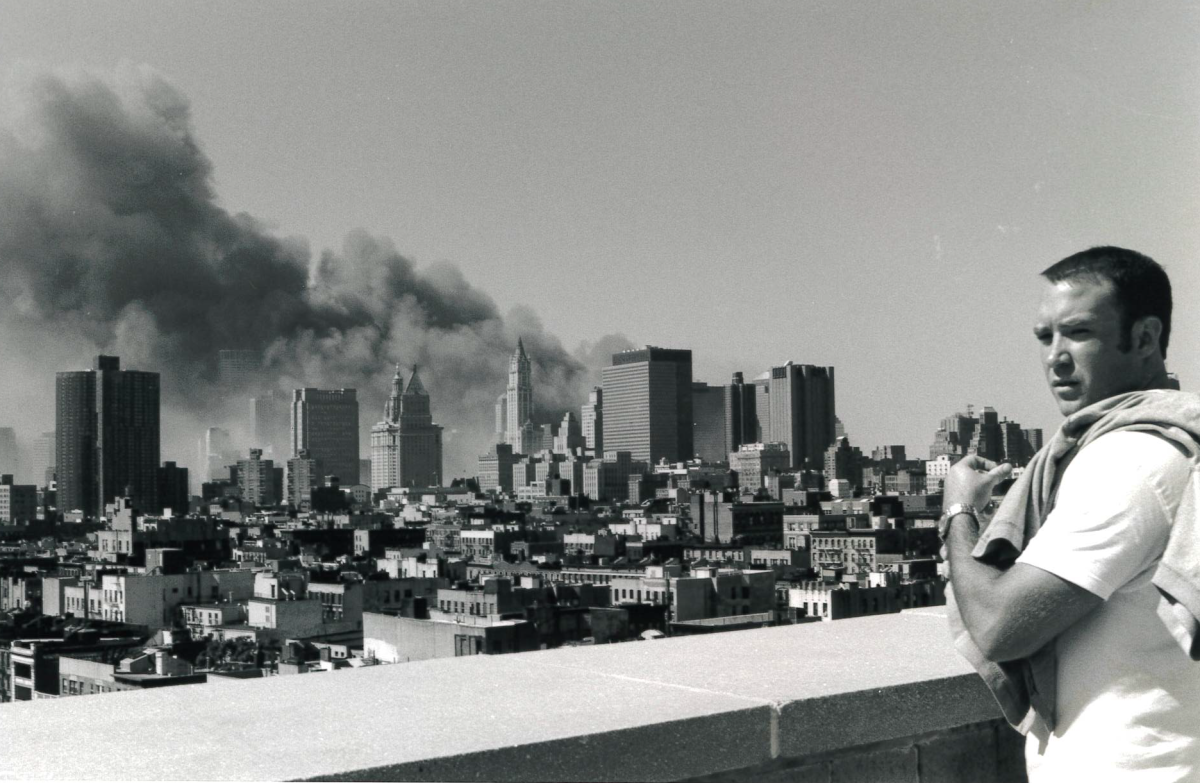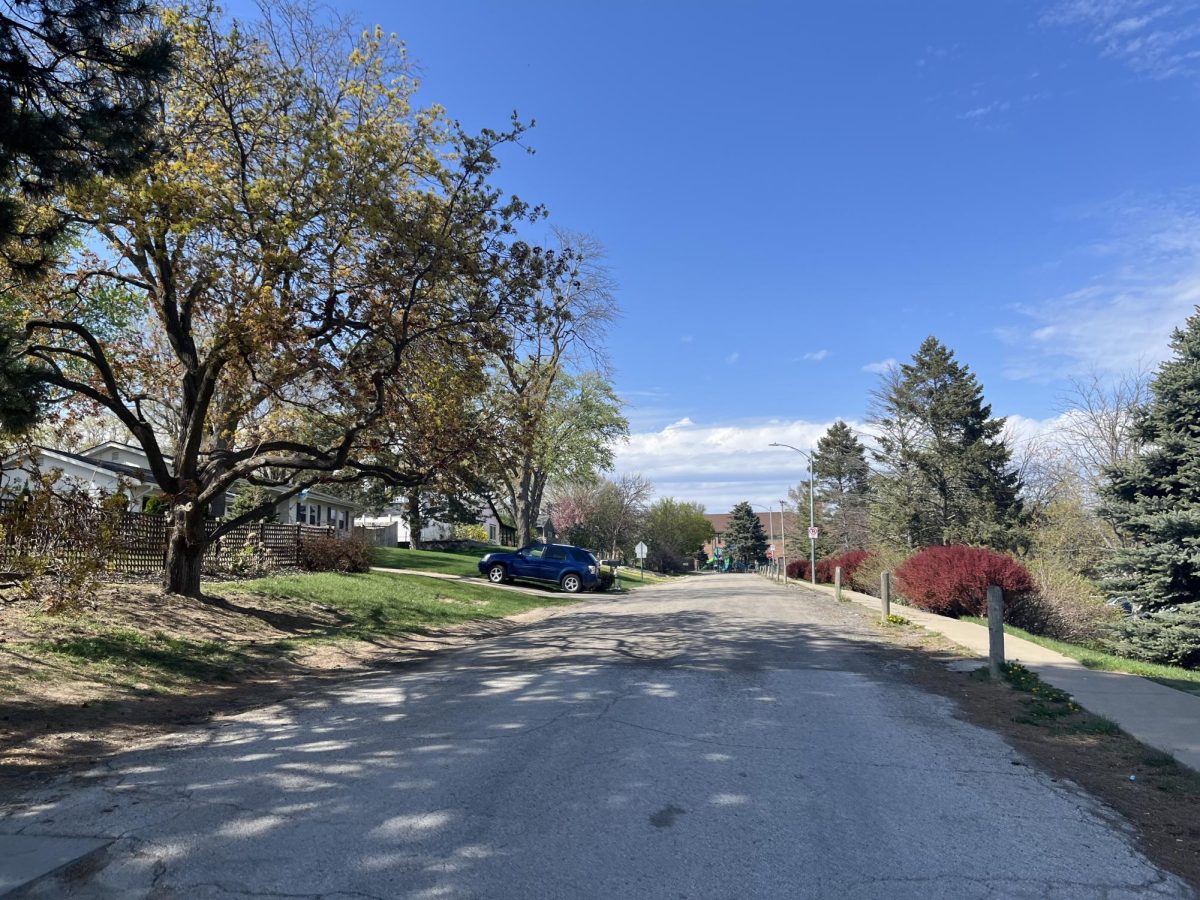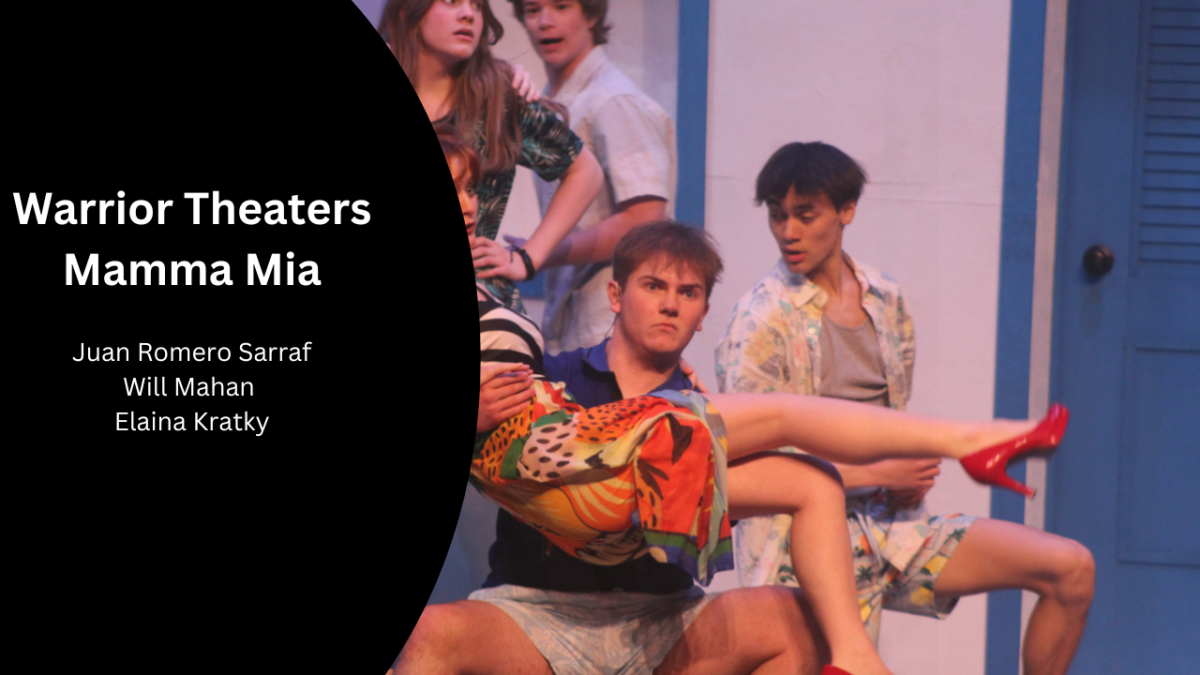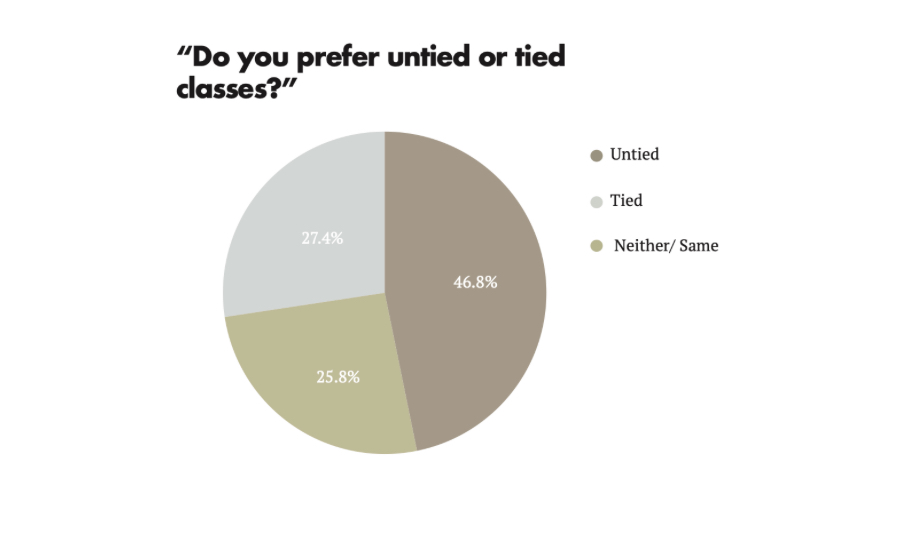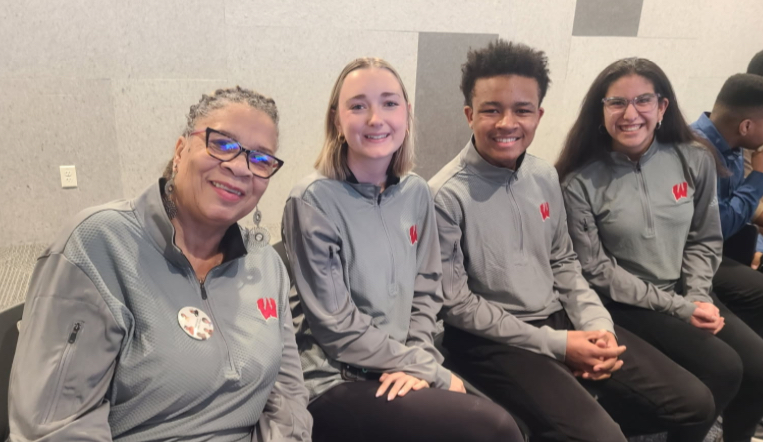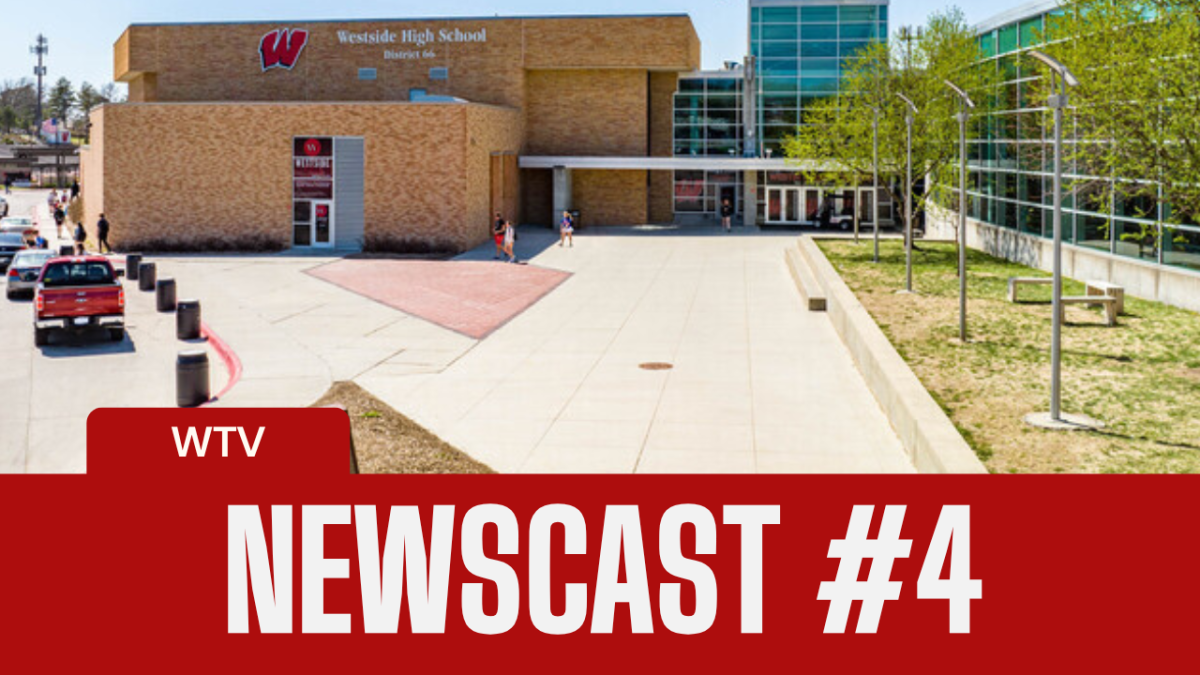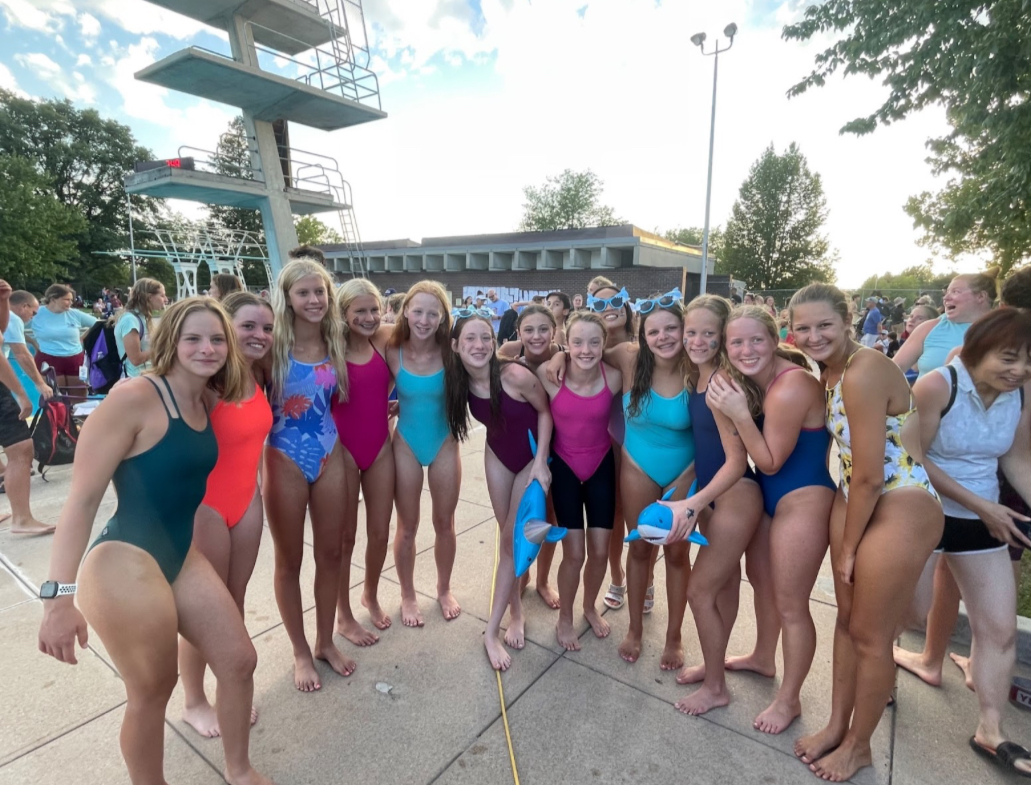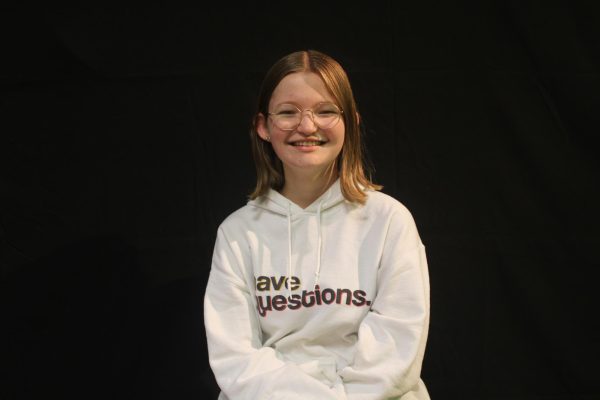On September 11, 2001, Jason Quinn, a 1993 graduate of Westside High School, returned to his desk on the 36th floor of the World Trade Center’s south tower with his bagel and orange juice around 8 a.m. and prepared to get to work. However, there wasn’t much the property casualty commercial insurance worker was able to get done before he heard a sound above him.
“I heard what sounded like somebody lighting a cherry bomb or an M-80 on the floor above us,” Quinn said. “I had nothing else to compare it to. I haven’t been in the military. I don’t know what real bombs sound like or an airplane crashing into a building.”
The workers in the office fixed their eyes on the window as office contents from the north tower rained down, hitting the glass. A manager in Quinn’s office made the quick call for people to move away from the windows, but not before Quinn looked down.
“It looked like a riot,” Quinn said. “It looked like there were fires everywhere, which to me looked like a riot. We had no idea what had happened. It didn’t sound very loud from the north tower to the south tower.”
At this time, hijackers had taken over American Airlines Flight 11 and crashed the plane into the north tower, 93 floors up. No one truly understood what was happening, but Quinn knew he had to get to the ground.
“I think it took me 10 or 11 minutes to get down,” Quinn said. “I took 36 flights of stairs and left my bag, my keys, my ID, everything, because I was naive enough to think we would be back.”
In a stairwell with so many people, there’s bound to be some congestion. However, Quinn was quick and was out of the building as fast as he possibly could be. He ignored the messages telling them they could return to their desks.
“When I heard ‘building one is secure, you can return to your desks’, I don’t know what made me not want to do it,” Quinn said. “I don’t really know other than sixth sense. I’m sure it caused all kinds of lawsuits. It wasn’t a true statement.”
Quinn raced past the people in the stairwell and out the door, slowing down to take in his surroundings.
“When I walked to the south side of the south tower, it looked like winter,” Quinn said. “The ground was covered in drywall and the stuff that comes out of drywall. It was covering the ground and everyone’s faces as they ran. It was surreal.”
Quinn decided to move towards the other building, finally spotting the plane lodged into the side. After seeing that, Quinn ran across the street towards a hotel.
“I went over to this overhang because there was so much stuff falling and that’s when I thought a bomb went off but it was the second plane hitting the tower literally above my head,” Quinn says. “At that very moment, everyone knew it was terrorism.”
Confused and scared, Quinn moved towards a landline nearby to call his parents in hope of letting them know he was alright, but it was no use. No calls were going through at that time. Quinn then decided to start walking back towards the towers, around 10 a.m.
“I walked by where my friend lived, really close to there,” Quinn said. “I was trying to get him up, but he wasn’t there. That was when the manager of his apartment told me people were jumping from the towers.”
Quinn continued towards the towers, but feared the buildings would come down on his head. He turned and ran, hearing another explosion behind him. He barely got away from the dust that covered everyone and everything.
“I remember I could feel the girders of the building bounce and come to settle. Manhattan is basically an island and when something heavy fell you could feel it throughout the whole place.”
Quinn kept walking, ending up in Chinatown where he paused to turn around.
“I remember I was on the ground… and I saw the antenna disappear away on the north tower,” Quinn said.
He finally made it to his friend’s place at 11:30 a.m. He didn’t get back to his own apartment for over a week after this event.
Thanks to the y2k issue, the World Trade Center had a contingency plan. While the towers were being destroyed, they were already in the process of ordering new computers to get ready.
“We had a satellite office in Englewood Cliffs, New Jersey that we used,” Quinn said. “However, I didn’t go back to work right away. I caught the last ferry out of Manhattan.”
Quinn spent a lot of time with his family after this event. Being one of the youngest people in his office at the age of 26, he was not expected back so soon. In the end, it took him almost two weeks to return to work.
“It was emotional, and from a work standpoint I had to take two different subways and a bus and it sucked,” Quinn said. “I was stuck in Englewood Cliffs all day so it was business as usual but there were some dark days.”
Quinn explained that he finds talking to people about his experience therapeutic, and that many of his friends lived through these events with him while hearing about his experiences.
“I used to think about what happened a lot afterwards,” Quinn said. “I didn’t like to drive through tunnels and every time I saw a plane for the next ten years after that, it was all I thought about. Not in a bad way, but just to keep everything a bit real.”
However, Quinn was not scared off by this experience. In fact, he stayed in New York for another four years and moved back to Nebraska for a different reason entirely.
“I was 30 in 2005 and saw myself with way more potential here than there,” Quinn said. “I moved back to take a position at Quinn Insurance.”
Quinn now works for his family business in Nebraska, but he still holds New York in a good light and has gone back to visit multiple times. He took his family to see the reflection pools and museum that were created in honor of what had happened.
“They were spot on,” Quinn said. “They couldn’t be more appropriate or cool, and the things in the museum were tear-jerking for sure.”
When it comes to memorials like these, it’s hard not to think of 9/11 as a historical event that happened long ago. Especially for people who didn’t live through it. In schools today, textbooks have a habit of concentrating on the wars that were happening rather than what really happened.
“What really happened was twisted from defending ourselves against Afghanistan to a war with Iraq that never should have happened,” Quinn said. “I’m not saying they didn’t have all kinds of bad things going on there but there were no weapons of mass destruction. That was, in my opinion, fabricated.”
Quinn wants people to take away the true facts about 9/11.
“They put up that ‘mission accomplished’ thing on that boat like we had won some hard war,” Quinn said. “From a textbook standpoint, I would be interested in seeing what gets okayed to be distributed to our children about 9/11.”
In the end, Quinn was not scared away by what happened on September 11, 2001.
“I still love New York,” Quinn said. “It didn’t frighten anyone away. People close to me took jobs way up in the new tower. They didn’t win, basically. Not that I want to make this an us against them thing. It’s just that you can knock us down, but you can’t keep us down.”


